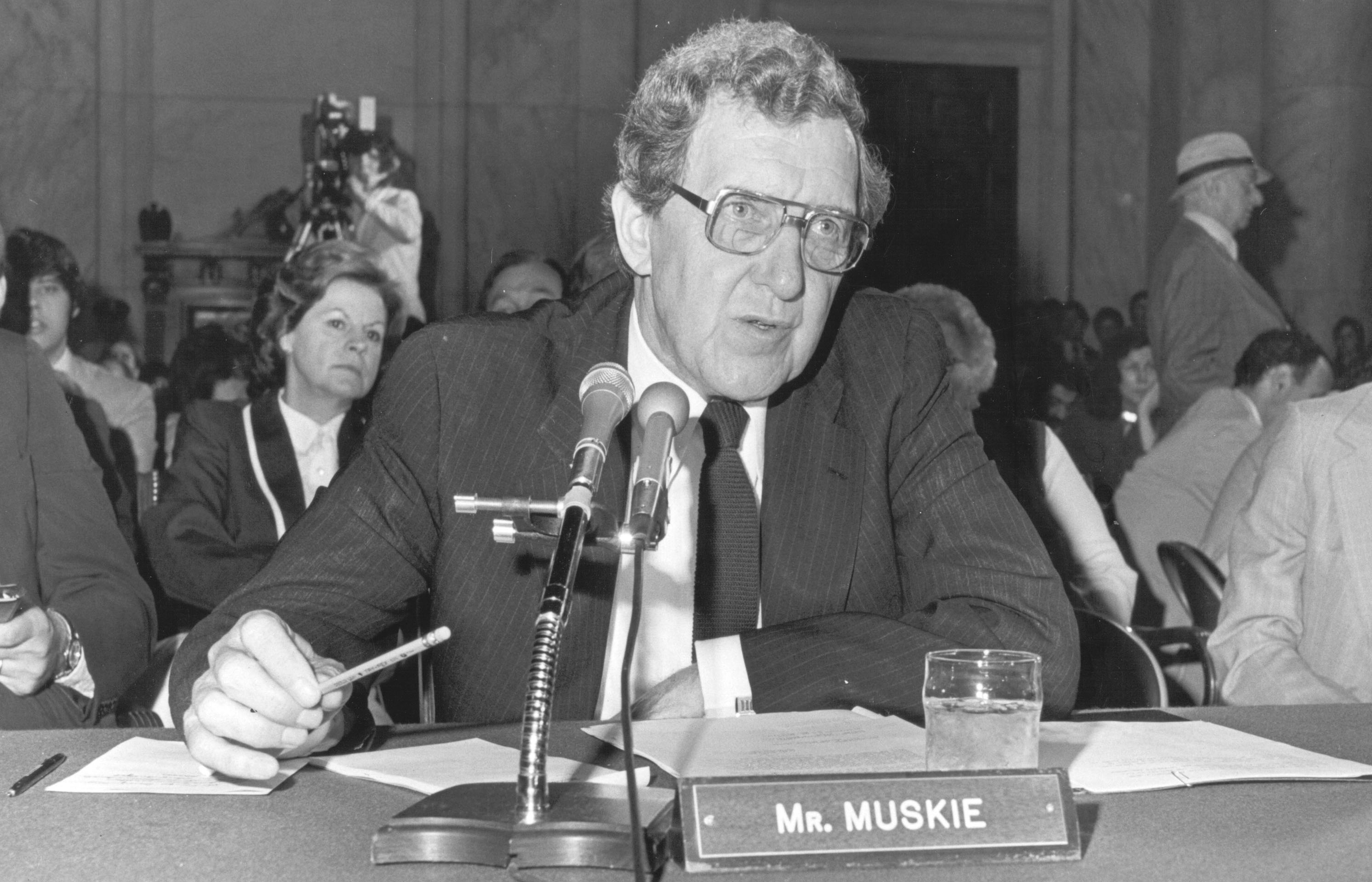
Edmund S. Muskie Oral History Collection
Document Type
Oral History
Loading...
Publication Date
3-23-1999
Interview Number
MOH 075
Abstract
Richard “Dick” Trafton was born in Lewiston, Maine, January 17, 1949. Willis Trafton, his father, ran against Edmund Muskie for governor in 1956. Richard attended Andover Phillips Academy and then Dartmouth College (Class of 1971), majoring in Geography with a focus in urban and regional planning. His wife, Barbara (McKnight) Trafton, attended Wellesley College. She marched on Washington to protest Vietnam, ran for city council, and served three terms in Maine legislature immediately preceding Richard (1976-1982). They met while she was pool director at YWCA and he was Lewiston city planner for three years. Both volunteered going door-to-door for McGovern during the 1972 Presidential campaign, were delegates to Maine State Democratic Conventions, and are involved in alternative area newspapers to the Sun Journal.
For graduate school, Trafton attended the University of Maine Law School, studying real estate, tax and business law and physical land-use planning. He joined his father’s law firm when Damon Scales was appointed as a judge. Trafton is part of an Auburn downtown planning group and was made Chair of the Charter Commission in Auburn in 1978. He was a State Senator, District 12, from 1982 to 1986, serving as Chair of the Judiciary Committee during his first term and as Chair of the Committee on Legal Affairs during his second term. He also chaired several governor-appointed “Blue Ribbon Commissions” dealing with tort reform, land use enforcement, and restructuring the probate court system. He served as Mayor of Auburn for one, one-year term and two, two-year terms from 1989 to 1994.
Use Restrictions
Copyright Bates College. This transcript is provided for individual Research Purposes Only; for all other uses, including publication, reproduction and quotation beyond fair use, permission must be obtained in writing from: The Edmund S. Muskie Archives and Special Collections Library, Bates College, 70 Campus Avenue, Lewiston, Maine 04240-6018.
Recommended Citation
Gethin-Jones, Meredith, "Trafton, Richard oral history interview" (1999). Edmund S. Muskie Oral History Collection. 389.
https://scarab.bates.edu/muskie_oh/389
Second part of interview
MOH_075_02_A.mp3 (15786 kB)
Third part of interview
MOH_075_Transcript.pdf (116 kB)
Transcript


Scope and Content Note
The interview includes discussions of: Muskie’s first term as Governor from 1955-1956; the 1956 gubernatorial campaign during which Willis Trafton ran as a Republican candidate as a means of strengthening Eisenhower’s presidential campaign in Maine; Trafton’s childhood view of Muskie as his father’s nemesis; Muskie’s 1976 Senate campaign; Muskie providing sound bites for Barbara and Richard Traftons’ state legislature campaigns; environmental protection (Clean Water and Maine’s paper companies); Barbara Trafton’s contact with Muskie’s office in connection with her involvements with marches on Washington in protest of Vietnam; Model Cities (block grants, UDAG, downtown improvements for Lewiston, Bangor, Portland); Muskie support for Bath Iron Works, Limestone/Loring Air Force Base and Kittery; Willis Trafton’s political leanings (Nelson Rockefeller-like liberal Republicanism, fiscal conservatism, individual rights in social issues) as predominant in Maine in the 50s and early 60s; French being the prominent language of businesses on Lisbon St., Lewiston, Willis giving campaign addresses in French; a shift in the early 70s and 80s towards conservative Democrats (fiscal restraint); Lewiston/Auburn as the center of textile and shoe mills (the Strike of 1937, movement of textiles to the Carolinas during the 40s and 50s);Trafton, Scales and Smith (or Trafton, Smith and Matzen) country law practice; issues he faced as Mayor of Auburn, such as the budget, economic development, local tax rate, political organization; and a rewriting of the city’s charter which changed the terms of office, staggered terms, and expanded city council; Cooperative efforts between Lewiston and Auburn, including economic development, bus service, Central Maine Power, and the Great Falls Hydro Station; his family history of public service; judiciary issues he dealt with including liquor liability, tort reform, and land use enforcement; and his experiences in the 1980s in Senate district 12 (Auburn, Hebron, Mechanic Falls, Poland).